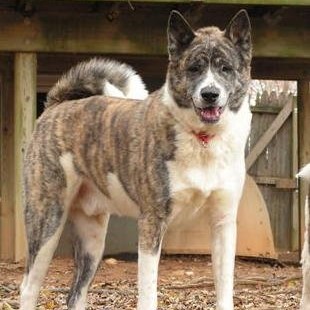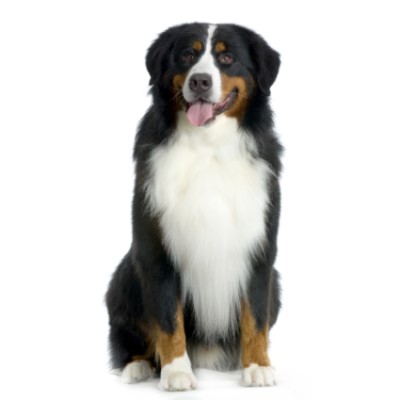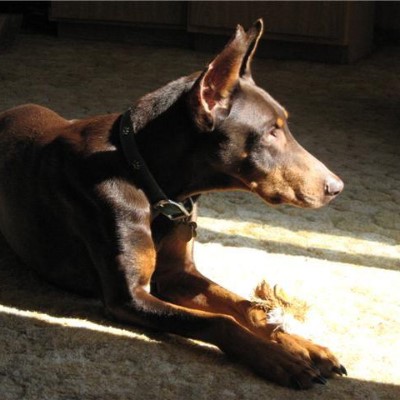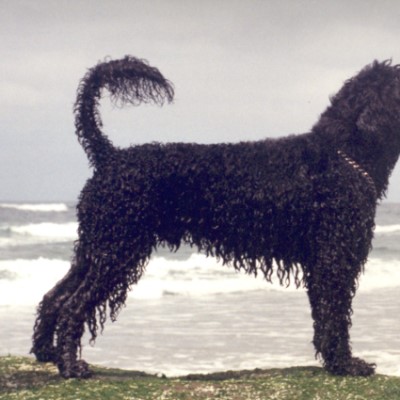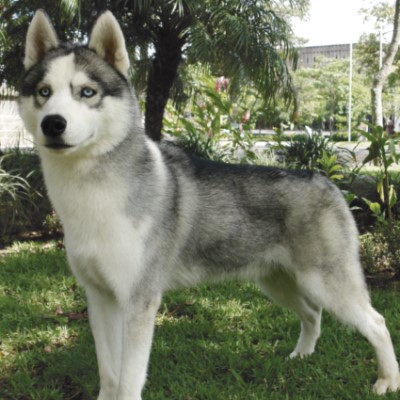Common Reasons for Surrender
Rescuers say the primary reason the Mastiff is surrendered is he will literally chew through the door to get to the other side of it. Other reasons include moving, a divorce, or a new baby on the way.
Pros
The coolest thing about owning Mastiffs is their unconditional love and excitement to greet you at the door, even if you only went outside to get the mail.
Mastiffs often go to hospitals, women’s crisis centers, and nursing homes, and bring smiles to people’s faces in reading programs where the dog lays down and children read to him.
Cons
You will want to teach your Mastiff not to jump because he’s so big and can easily knock people over. Also, jumping up is not good for a Mastiff’s joints. Mastiffs must be trained in obedience because they are so big. The Mastiff is known to spread slobber on the ceiling fan, walls, and ceilings and knock over things if left alone and bored.
You must also realize that everything from food to anesthesia for surgery will cost more for the Mastiff because he is a big dog.
Diet
A Mastiff will thrive on a natural raw meat and raw bones diet but will also eat kibble; just make sure that the first three ingredients are protein and not grains or fillers such as corn, wheat, whey, or soy. For treats, you can give the Mastiff baby carrots, green beans, vanilla wafers (which actually have better ingredients than a dog biscuit), and Cheerios. Food is $40 a bag, and the owner will go through at least $500 a year for food.
Exercise
While there are people who take their Mastiff on a mile walk every day, Mastiffs are not hyper. Most of them are laid back and feel satisfied with a run in the backyard. Mastiffs generally sleep during the day and at night. They are gentle giants that don’t run around and chase squirrels. They’re actually mellow couch potatoes.
 There are some Mastiffs that compete in agility and enjoy training in dog shows.
There are some Mastiffs that compete in agility and enjoy training in dog shows.
Possible Health Issues
There’s a long list of health issues encountered by the Mastiff, such as hip and elbow dysplasia, cardiac problems, Progressive Retinal Atrophy (PRA), thyroid problems, cancer, epilepsy, bloat, and wobblers.
Housing
Stairs are difficult for an older Mastiff, so the suburbs or the country is the best home, preferably in a one story house.
Grooming
The Mastiff needs a good daily brushing. Periodically clean his ears and trim his toenails once a week.
Training
The Mastiff needs a compassionate, firm hand and positive training. She wants to please her family so if you put your hands on your hips and look at her with displeasure, she’ll melt into the floor. Positive reinforcement is the best training method.
Entertainment
They love to eat.
Average Cost
The Mastiff is not a cheap dog and needs the heartworm preventative, Heartgard, which is a chewable tablet you can get from your vet. It costs $40 for a three month supply. Flea prevention is another $200 a year.
ADDITIONAL RESOURCES
Whole Dog Journal Magazine: www.wholedogjournalcom
Also, Pat Miller Certified Trainer is the author of the following books:
Positive Perspective: Love your Dog, Train Your Dog
Positive Perspective Two: Know Your Dog, Train Your Dog
Power of Positive Dog Training: Play with your Dog
Do Over Dogs—Give your Dogs a Second Chance at a First Class Life
We want to thank Friends of Rescued Mastiffs (FORM) for help with this profile.

